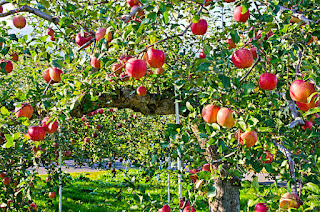Stephen’s Sailin’ Home for Christmas
Eton College. Durham School. Westminster School. The names of
the most prestigious boarding schools in the United Kingdom. With crests
possessing strong figures of wildlife and a motto usually inscribed in Latin,
these schools represent the pinnacle of British education. In fact, nineteen of
the previous British prime ministers have attended Eton. Yet despite the pomp
and circumstances that encompasses attending one of these schools, many people
have spoken out against these institutions. With the likes of Bear Grylls,
Dominic West and Damien Lewis voicing their worries concerning both their
fellow peers and the institutions, a common theme that combined their related
experiences was a lack of identity. Sadly, for poor little Stephen Dedalus,
this was also the case. Along with the feeling of isolation from the rest of
his peers, Stephen’s absence of self was ingrained in his homesickness. Getting
the better of him regularly, his mind would often drift toward thoughts of life
at home.
So, when school broke up for Christmas, Stephen couldn’t wait to be reunited with those he held close to him. The fire is burning, the family are all over and it’s time for one of the best parts of Christmas; the dinner. The table is set, everyone is sat down and Mr Dedalus sighs in relief as Stephen finishes saying grace. He is ready to carve into “the plump turkey which had lain, trussed and skewered, on the kitchen table.” (28). There is something about this imagery that is incredibly striking; it’s almost as if the bound turkey is some form of sacrifice. From Joyce’s narrative, we can see that it’s the best of the best, it’s “the real Ally Daly” (28). Once again, the turkey is part of a fascinating piece of writing. It’s the best in its field, a prize winner, and the kitchen table is its podium, drawing focus from ever seat surrounding it. The turkey has certainly not gone unnoticed, especially by Stephen. Food is powerful at a younger age. It’s appearance, it’s smell and its taste is something which can have an everlasting effect on a child. Joyce’s taps into this through his narrative, his descriptions are incredibly vivid. “the warm heavy smell of turkey and ham and celery rose from the plates and dishes and the great fire was banked high and red in the great and the green ivy and red holly made you feel so happy” (28). Joyce’s words have become engrossed in the sentiment of a boy experiencing Christmas for the first time, projecting these images and smells as one which will be remembered for a long time. There is so much that can be said about this book’s relation to food. But for now, I will leave you with this quote from Alison Lurie, a statement that shows Joyce is not alone in signifying the importance of food in children’s literature.
So, when school broke up for Christmas, Stephen couldn’t wait to be reunited with those he held close to him. The fire is burning, the family are all over and it’s time for one of the best parts of Christmas; the dinner. The table is set, everyone is sat down and Mr Dedalus sighs in relief as Stephen finishes saying grace. He is ready to carve into “the plump turkey which had lain, trussed and skewered, on the kitchen table.” (28). There is something about this imagery that is incredibly striking; it’s almost as if the bound turkey is some form of sacrifice. From Joyce’s narrative, we can see that it’s the best of the best, it’s “the real Ally Daly” (28). Once again, the turkey is part of a fascinating piece of writing. It’s the best in its field, a prize winner, and the kitchen table is its podium, drawing focus from ever seat surrounding it. The turkey has certainly not gone unnoticed, especially by Stephen. Food is powerful at a younger age. It’s appearance, it’s smell and its taste is something which can have an everlasting effect on a child. Joyce’s taps into this through his narrative, his descriptions are incredibly vivid. “the warm heavy smell of turkey and ham and celery rose from the plates and dishes and the great fire was banked high and red in the great and the green ivy and red holly made you feel so happy” (28). Joyce’s words have become engrossed in the sentiment of a boy experiencing Christmas for the first time, projecting these images and smells as one which will be remembered for a long time. There is so much that can be said about this book’s relation to food. But for now, I will leave you with this quote from Alison Lurie, a statement that shows Joyce is not alone in signifying the importance of food in children’s literature.
“It has
been suggested that in classic children’s literature food replaces sex as the
principal source of excitement and sensual pleasure” (176).



Comments
Post a Comment